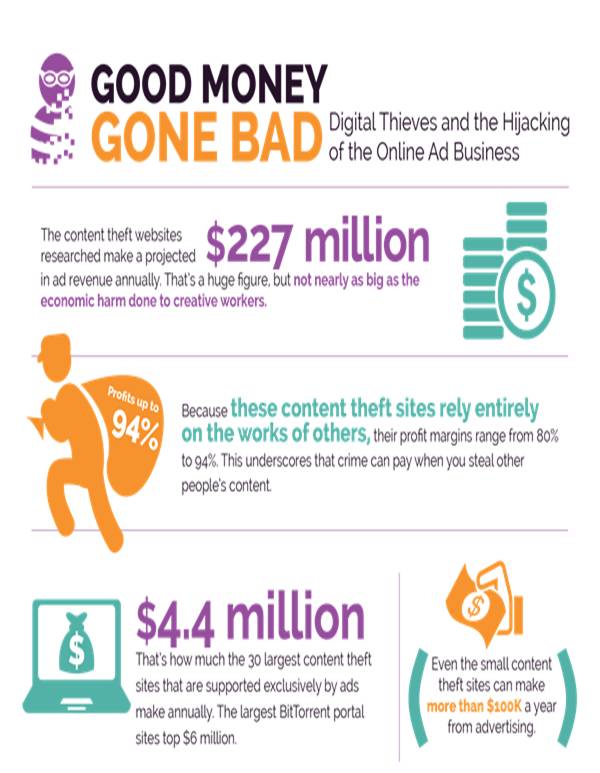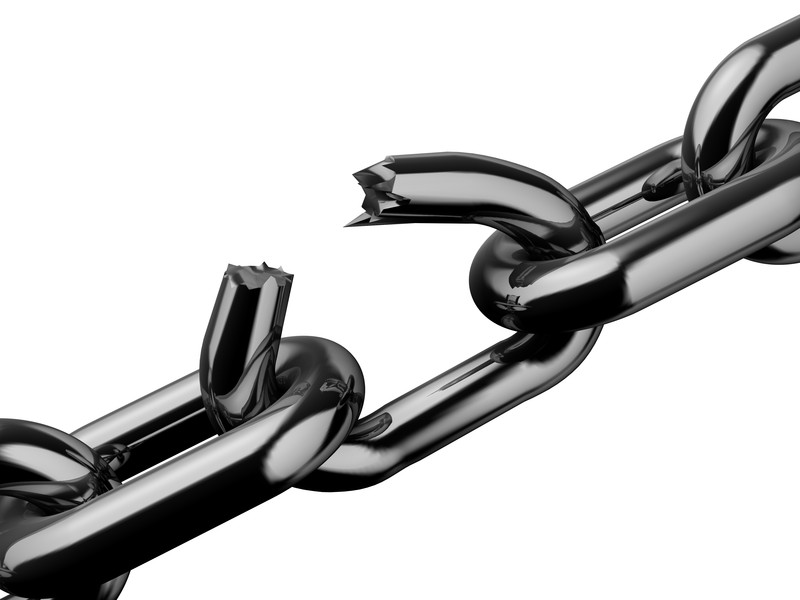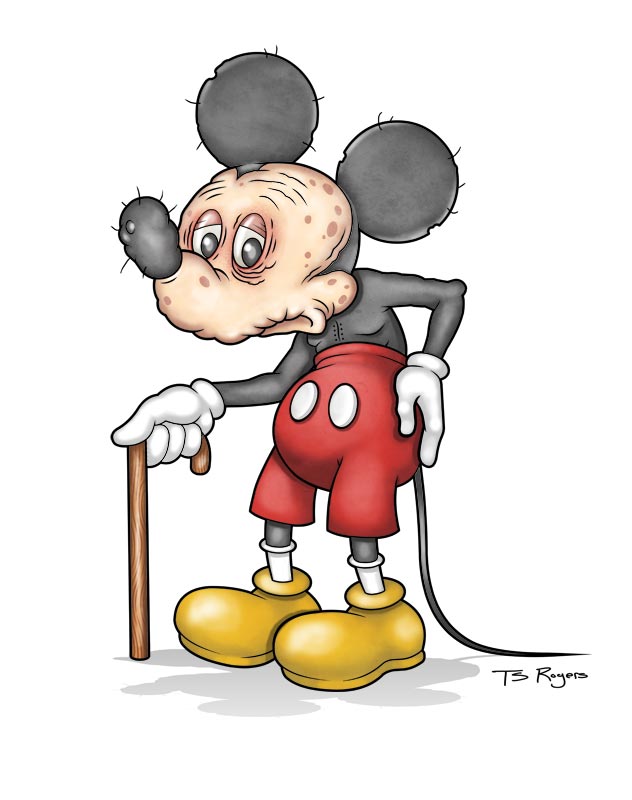The Music Piracy Complex – Part 2
The following is Part 2 of a 2-part series examining the less obvious aspects of the state of music piracy. Part 1 can be read here.
Part 2 – The Artist as the Victim
Meet the New Boss…
It is too simplistic a notion to throw all consumers under the bus as the main agents of piracy whilst corporations invoke the name of the artist to generate revenue, but then subsequently engineer creative accounting systems and interpretations of the law to deprive these same artists of their rightful revenues. As David Lowery of the bands Cracker and Camper van Beethoven astutely observed in his critique on the state of affairs, “Meet the new boss, worse than the old boss?”,
The tech side of the music business really needs to look at how their actions and policies negatively impact artists, just as they have pointed out the negative effect record company actions have had on artists. Too often the debate has been pirates vs the RIAA. This is ridiculous because the artists, the 99% of the music business are left out of the debate.
Unfortunately, artists who have spoken out intelligently against the injustices of the current system are often brush-stroked broadly by the digerati/ tech lobbyists as “dinosaurs……luddites or doddering old hippie musicians.”
It is also ironic that in this digital age where processes and resultant royalty earnings can be mapped down to the minutiae, transparency is the enemy and obfuscation seems to be the norm in the music industry. And the biggest loser seems to be artists.
Artists Beware…
How do they screw thee? Let me count the ways
They screw thee to the depth and breadth and height
Their hands can reach, grab your money out of sight
1) Equity, Advances/ Breakages, Piracy Settlements

The newest shenanigan in the hall of shame is the side deal which some labels have been making with music services for equity and non-recoupable advances that will not be paid to the artists they supposedly represent, with both music services and labels conveniently hiding behind non-disclosure agreements that serve more to keep the information away from the artists than to preserve business confidentiality.
Robb McDaniels, CEO of music distributor INgrooves, recently shared his insights on major labels’ machinations on market share:
”I have long wondered why major labels and publishers care so much about ‘market share’, seemingly above even generating profits (at least at the distribution/JV level). I now realize that it is because there is so much non-recorded music revenue generated from the market share metric. Things like equity stakes in startups, non-recoupable advances and fees from retail and promotional partners, black box funds from performance royalties not collected by indies and “in store” promotional space.”
Rich Bengloff, head of the Association of Independent Musicians accused some of the majors of extracting equity deals and/or huge advances from streaming sites like YouTube and then jointly engineering low ‘standard’ per stream rates so that they only need to pay through a fraction of it to artists.
Bengloff added:
“Then, on top of that, they have something called a ‘listener hour guarantee,’ which they know is going to up their compensation by about 40% — since it’s per listener hour, not per track, the artist gets screwed because it’s not attributable to a track, so the artist doesn’t get a royalty. That’s not fair, that’s not the way we do business. The third thing they do is get a minimum annual guarantee or an advance if they know the service isn’t going to reach that level of business and be able to recoup — it’s what’s called [digital] breakage and they also don’t share that with the artists.”
Although negotiations are done in the name of artists via a collectivization of songs, artists are paid only a portion of the breakage and the corporation keeps an inordinate share, and this is what I will term ‘leakage’. Following a similar pattern, anti-piracy action by corporations, again undertaken in the name of artists that results in successful compensation claims or settlements have often not been disbursed to artists.
It’s a fine line to tread as the sales of last.fm and early MySpace off the backs of musicians pushed the labels to swing the other way and demand greater accountability (and equity) from other start-ups. But the processing of streaming revenue royalty reports is in itself resource intensive service that not all entities in the food chain are able to provide satisfactorily leading to another source of leakage.
The silver lining in light of the increased role of streaming has been the emergence of some enlightened labels that have looked out for their artists and provided them fair royalty rates to their artists as the market evolves.
2) Advertisers/ Ad Agencies/ Website/ Media brokers/ Google conspiracy
Follow The Money
Most pirate sites survive…scratch that, thrive on advertising revenue especially by tapping into Google’s advertising programs. A study by the Digital Citizens Alliance estimates that pirate sites earned more than $227 million in revenue annually.
Advertisers are not limited to dubious fly-by-night companies, but also to many major brand advertisers like Amazon, Adobe, AT&T, BMW, Ford, HP, LG, McDonald’s and Target.
Samsung was notorious for advertising on many unlicensed music services, fueling the pirate industry in China, while Nokia’s Asian marketing team maintained for a number of years that it would continue to advertise on pirate sites and worked on a different remit from its very own Nokia music service. Little wonder then that its music service was doomed when its own staff acted against the interest of artists and labels.
The usual reaction from media agency executives and marketing directors in many of these companies is to feign innocence and blame third party ad networks – which conveniently gives them plausible deniability. They are happy to gather large traffic numbers (fraudulent or otherwise) to bolster their internal targets, regardless of whether pirate sites have been farmed. However, this also serves to strengthen the ad fraud element in the business with Google being a key cog in the machine by serving ads to many pirate sites and amassing huge revenues in the process. There is a whole ecosystem – of advertisers, media buyers/ brokers, ad networks with so-called programmatic systems, ad serving companies, websites and Google itself – that feeds off the advertising system at the expense of content creators, that is, the artists.
As David Lowery of Cracker and Camper van Beethoven sums it up:
“We can see that there are a lot of people making a lot money from the unauthorized, illegal infringement of artists’ and creators’ work. This is no longer about individual ‘sharing.’ This is about businesses exploiting artists for profit, and not paying the artists a penny.”
3) The DMCA Safe Harbor Law Abuse
“Safe harbor provisions were introduced with some foresight, by the legislators in the USA framing the DMCA, to provide a notice and take-down procedure for unlicensed content. But the legislation has been distorted into a protective wall behind which cyberlockers and torrent sites, and companies such as YouTube and Grooveshark operate.
The original intent was to protect reasonable people acting reasonably from falling foul of the law, to enable the digital economy to grow without ‘gotcha’ lawsuits against ISPs who had no idea that their networks were being sued for infringement. They were not intended to provide fortress walls behind which companies could build billion dollar businesses on content that had not been cleared. They were never intended to become a “defacto licence”. As you might imagine, policing the YouTubes of this world for infringing content is a herculean task, one beyond all but the largest of companies.
These provisions are being abused. Many of the companies taking advantage of them are not start-ups that need a break, they dwarf everyone in this room. They’ve been in business long enough to now be able to identify that content. They know what it is……We are at the point at which notice and take-down must become notice and stay down.”
~ Sir Martin Mills, Chairman, Beggars Group
It has been expedient to simply frame the end-consumer with the smoking gun, but the other players in this cozy little ecosystem are all set up to knowingly profit while facilitating the transfer of unlicensed content.
But what about a user who downloads the music of Pretty Lights or Moby via torrents? Both artists used Bit-Torrent as a mass distribution mechanism. Yet if that same user downloads a Madonna album via a torrent, he is somehow expected to differentiate that this is unlicensed. Furthermore, if a pre-release unlicensed Madonna album were available on both file locker Mega and YouTube, users accessing it via the former would most likely be accused of piracy but not those via YouTube.
Kim Dotcom, owner of the now defunct MegaUpload file locker service, upon his arrest infamously claimed in his defense that his business was no different from YouTube, in that users were similarly uploading files, and his organization should therefore be protected by the Safe Harbor provision in the copyright law. Interestingly, Google went so far as to file an amicus brief in support of another file locker service, Hotfile (and also defended MegaUpload) but despite that, Hotfile was found guilty of piracy in a case brought against it by the MPAA. Of course it still remains to be seen if Dotcom’s MegaUpload induced/encouraged piracy or violated some other statutes of the copyright law, which will eventually be determined by the courts, hopefully without further use of SWAT teams!
Note that Viacom sued YouTube for piracy and lost the case despite producing a smoking gun of emails showing that the founders had knowledge that unlicensed content were on their service, with the tacit understanding that this would attract the most users, which was surely a violation of the Safe Harbor Law. Pirate Bay and its founders, on the other hand, were conclusively found to be guilty of piracy by the Swedish courts in 2009, but Google and most ISPs around the world have been reluctant to block the site, yet Google zealously blocks child pornography sites proving that they are not just dumb pipes with no control over content.
4) Collection Societies/ Performance Rights Organizations
Collection Societies and Performance Rights Organizations were set up in a byzantine era when the world was a seemingly bigger place and these collective rights organizations were able to simplify the licensing process and collect revenues in bulk from various organizations that used their members’ works across international borders.
With a borderless Internet world and the emergence of digital formats, rights licensing should have been a more transparent process but has become mired in complex territorial legacy systems that has hobbled the fair flow of revenues to artists.
There are some well-meaning and effective collection societies that have upped their game and have served their members well, but as they are part of a global network, they are only as strong as their weakest link. Collection societies in some countries are downright corrupt and the current anachronistic structure serves as a black hole where artists revenues go to die, or worse, line others’ pockets.
It is a disgrace that millions of dollars in artists/ composers revenues remain unpaid as it supposedly cannot be matched to the rightful artist/ composer simply because music metadata systems are a mess. Worse, it has been said that in some collection societies, unmatched black box royalties for so-called orphan works are sometimes divided up and shared amongst the top publishers. The 1% rule applies again and robs more artists of their revenues.
To the outsider, putting together a veritable central database of artist metadata and rights does not seem to be a complex task in this digital age. Yet, the Global Repertoire Database initiative which was supposed to have addressed this was scrapped in June after 6 years and 8 million pounds spent.
The outsider obviously does not have to contend with the various parties’ parochial interests. Complete Music Updates’ Chris Cooke wondered if some members wanted it to fail as, “an efficient repertoire database would render the societies redundant in that domain.”
Clearly, more needs to be done to clean up the undesirable elements in the network.
5) US Terrestrial Radio Performance Royalties

Unlike most of the free world, terrestrial and satellite radio stations in the US only pay royalties to composers for the performance rights of the musical works (the lyrics/composition) via ASCAP, BMI and SESAC, but not for performance rights of the sound recording to the artists who recorded the works.
Internet radio stations in the US on the other hand, have been paying both since 1995, highlighting a discrepancy in the application.As the non-payment of sound recording royalties also applies to foreign artists whose music is used by US terrestrial radio stations, Performance Rights Organizations in the rest of the world reciprocate the negativity by not paying US artists their royalties which almost all other artists in the world enjoy.
As such, foreign artists whose music is played on US terrestrial radio stations can deem it to be pirated music as they don’t get paid for it.
The US National Association of Broadcasters (NAB) with their strong lobbying arm has so far resisted calls to pay fairly and instead claim that radio stations are offering these artists the privilege of exposure and this should therefore be deemed a promotional activity. While there might have been a case for that in the past, Internet radio’s conformity to the payment of sound recording performing rights weakens the NAB’s case. Even though a proposed Performance Rights Act has now been submitted to attempt to correct this injustice, it remains to be seen if it survives the powerful lobbying forces.
Other countries that similarly do not pay artists in practice include China and North Korea.
6) Unethical Copyright Term Extensions
Copyright law was legislated to protect artists, authors and composers subject to a limitation of time, but long after they are deceased, their estates and corporate owners have lobbied to extend the copyright terms.
Copyrights expire after the life of the author plus 50 or 70 years (depending on the country) or for corporate authorship, 95 or 120 years. Or in the case of Mickey Mouse or Gershwin, seemingly forever, hence the reference to the law as the Mickey Mouse Protection Act.
In 1993, European copyright terms were extended by 20 years and in 1998, the US reciprocated by extending its term with the Sonny Bono Copyright Term Extension Act by another 20 years, supposedly to harmonize it with the European term but mainly at the behest of corporations which simply wanted to keep the revenues coming in. This was in addition to the 1976 Copyright Act that established an earlier copyright term. Long copyright terms lobbied by corporations undermine the raison d’etre of copyright and robs the culture of public domain works. It is rich irony that when the owning corporation or estate of an artist wilfully and successfully lobbies to extend the copyright term of works beyond its moral lifespan it is an act of ethical piracy against living artists who are robbed of the opportunity to re-use these works freely.
As the current extension cycle winds down, incumbent copyright holders will definitely attempt to start lobbying soon for another term extension to prevent their works from falling into the public domain on January 1, 2019.
Conclusion
There are many that act in the name of artists but until artists unite and reclaim their right with a greater say in the collectivization of their songs with a systemic, structural approach to cut the Gordian Knot, hitting out randomly at streaming services or radio et al is akin to a baby throwing toys out of a pram. There is definitely money in the recorded music industry, but currently it’s just being siphoned away from artists and misappropriated as advertising, technology, ‘unclaimed’, investment or even shipping revenue!.
For the average user on the Internet there is a basic truism that dictates their behavior:
If it’s on the internet, it can, and will be downloaded or streamed.
That consumers are burdened with complex moral or legal copyright dilemmas which the industry has failed to define and resolve properly in the first place is an atrocity. Artists and the music industry at large cannot cop their responsibility in fixing these broken areas by not speaking out and acting accordingly, otherwise they are simply complicit in the shenanigans of the complex.
Credits:
All images by Can Stock Photo except
Old Mickey Mouse by Teaessare Illustration & Design



[…] boxes by music Collection Societies and Performance Rights Organizations (PROs) globally, as they cannot be matched and distributed to artists and composers for a variety of reasons including missing or wrong metadata, outdated or […]
Pingback by The Wide World Of Music Recognition Technology - South Carolina Music Guide — October 26, 2015 @ 10:41 pm
[…] boxes by music Collection Societies and Performance Rights Organizations (PROs) globally, as they cannot be matched and distributed to artists and composers for a variety of reasons including missing or wrong metadata, outdated or […]
Pingback by TECHNOLOGY: The Wide World of Music Recognition Technology | eventnewsdigest.com — October 27, 2015 @ 11:57 am
[…] boxes by music Collection Societies and Performance Rights Organizations (PROs) globally, as they cannot be matched and distributed to artists and composers for a variety of reasons including missing or wrong metadata, outdated or […]
Pingback by The Wide World Of Music Recognition Technology - hypebot - WorldArts — October 29, 2015 @ 3:10 am